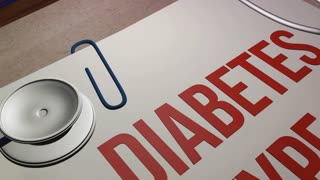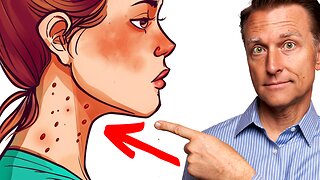5 Nighttime Signs of Diabetes You Should Know
5 Nighttime Signs of Diabetes You Should Know
-----------------------------------------------------------------
► If you're looking for a formula that promotes healthy blood sugar levels while offering other health benefits like...
► PROMOTING HEALTHY BLOOD FLOW AND CIRCULATION
► REDUCING SUGAR AND JUNK FOOD CRAVINGS
► SUPPORT FOR DEEP, REJUVENATING SLEEP
Click on the link below and get to know this fantastic Dietary Supplement:
---------------------------------------------------------------------
We want to keep bringing informative research-based videos for you. So if you got value from this video and would like more of it, you can send us a 'Super Thanks' by clicking the Thanks button at the bottom of the video. We would greatly appreciate it. Thank you! :)
---------------------------------------------------------------------
What bedtime issues can signal erratic glucose levels?
1) NOCTURIA is a condition where you feel the need to get out of bed two or more times during the night, to urinate. Chronic high blood sugar can directly result in the kidneys producing more urine, to flush the excess glucose out of the body. During the day, it can create the condition known as POLYURIA - or increased urination frequency.
2) Excess glucose in the bloodstream can cause electrolyte imbalances and changes in certain hormonal responses. These issues can all result in cramping in the stomach area. And diabetes-related GASTROINTESTINAL NEUROPATHY – or damage to nerves in the digestive tract, can lead to bloating, abdominal pain, and stomach cramps.
3) Diabetics are at an increased risk of nighttime HYPOGLYCEMIA – or low blood sugar - at night. A significant drop in blood glucose causes the body to release stress hormones, like adrenaline and cortisol. In turn, this will increase heart rate and respiration, leading directly to sweating.
4) Studies show that DIABETIC PERIPHERAL NEUROPATHY – or blood sugar damage to peripheral nerves in the legs - can lead directly to RESTLESS LEG SYNDROME. This neurological disorder is characterized by an irresistible urge to move the legs and is often accompanied by leg discomfort or even pain.
5) SLEEP APNEA presents as loud snoring, restless sleep, or daytime sleepiness. Other symptoms include gasping for air during the night, morning headaches, waking up with a dry mouth, and insomnia. This condition can be caused by various diabetes-related issues, including excessive weight.
---------------------------------------------------------------------
Click on the link below and get to know this fantastic Dietary Supplement:
-
 8:05
8:05
Wellness Impact | Type 2 Diabetes Coaching
2 months agoHyperinsulinemia: Understanding the Hidden Culprit Behind Insulin Resistance
19 -
 2:11
2:11
healthdove
1 month agoUnmasking Diabetes: Know the symptoms
44 -
 6:36
6:36
Dr. Eric Berg
24 days ago7 Signs You're Eating Too Much Sugar
5.64K3 -
 8:47
8:47
Wellness Impact | Type 2 Diabetes Coaching
2 months agoUnderstanding Insulin Resistance to Overcoming Diabetes
51 -
 0:56
0:56
Lafir
1 month ago20 ALARMING SKIN SIGNS AND SYMPTOMS OF DIABETES WITH CLEAR PICTURES!
331 -
 9:09
9:09
Wellness Impact | Type 2 Diabetes Coaching
1 month agoLean and Diabetic: What You Need to Know for Effective Control
79 -
 9:00
9:00
Dr. Becky Fitness
4 days agoSigns You're Overcoming Insulin Resistance
2431 -
 8:02
8:02
Dr. Becky Fitness
1 month agoYou May Have Insulin Resistance If…
292 -
 2:47
2:47
Clips2Click
2 months ago9 Warning Signs of Vitamin B12 Deficiency You Shouldn't Ignore
18 -
 9:45
9:45
Wellness Impact | Type 2 Diabetes Coaching
2 months agoHealthy Weight for Type 2 Diabetes | Diabetes Coaching
62